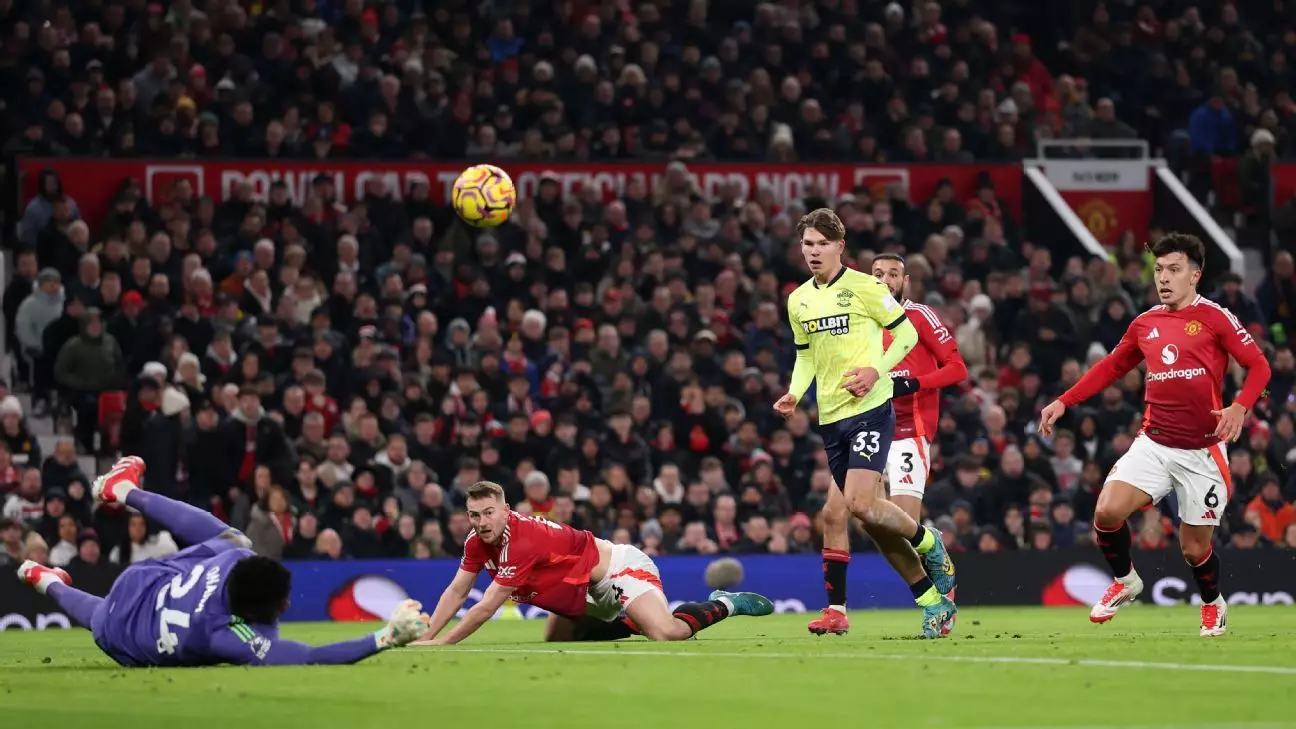Tyler Dibling has emerged as one of the brightest prospects in the Premier League, capturing the attention of some elite clubs, including Manchester United. This comes at a time when Southampton appears to be spiraling towards relegation, potentially becoming the worst team in Premier League history. Despite this turmoil, Dibling’s individual performance shines through as a beacon of hope for Southampton fans. His evident talent and skill have placed him on the radar of many top-tier clubs, leading to intense speculation about his future.
The conundrum lies in Southampton’s transfer valuation. Reports suggest they may demand an eye-watering £100 million ($125 million) for the England under-21 midfielder. This figure is ironically high, especially considering the club’s dire league standing. The valuation raises eyebrows, especially since a significant drop in league position usually diminishes player market value. Clubs typically leverage a player’s potential and performance metrics when negotiating transfer fees; hence, Southampton’s stance seems overly ambitious.
Manchester United’s Strategic Interests
Manchester United’s interest in Dibling is reflective of a broader strategy aimed at rejuvenating their squad. The dynamics change considerably if they manage to secure Champions League qualification by winning the Europa League. The financial ramifications of Champions League participation cannot be overstated: approximately £80 million in revenue could allow United to enhance their transfer budget dramatically. Such potential financial relief renders Dibling a more viable target, as United’s ability to outbid competitors increases substantially.
However, prioritizing Dibling amidst a crowded midfield market reveals the complexities of modern football strategy. Sources indicate that United plans to focus on signing a centre-forward this summer, with Ipswich’s Liam Delap reportedly leading that chase. The battle for a striker is critical, as the team seeks to improve its attacking prowess, particularly in light of dismal goal-scoring records in recent seasons.
A Broader Perspective on Player Valuations
The enthusiasm for signing young talent like Dibling brings forth questions about player valuations and club financial sustainability. This obsession with costly transfers often overlooks significant variables such as performance consistency and adaptability to new environments. Moreover, clubs must weigh the risks of securing unproven talent against the backdrop of financial pressures. What happens to the ambition of clubs like Southampton if their marquee talents leave for inflated fees and their relegation becomes a reality?
Leagues across Europe are witnessing a chaotic transfer market, dominated by lavish fees that inevitably distort player valuation norms. It reflects an age where emerging talents are wrapped in unrealistic price tags, often lacking a solid foundation of performance at the senior level. Despite these challenges, clubs like Manchester United are undeniably committed to revamping their squads, embodying the relentless pursuit of excellence.
The shifting priorities at Old Trafford emphasize the delicate balance between nurturing young talent and building a competitive team capable of reclaiming its former glory. How United navigates this junction—whether they can acquire Dibling or choose to focus on other tactical necessities—will ultimately shape their future strategies and success on the pitch.

